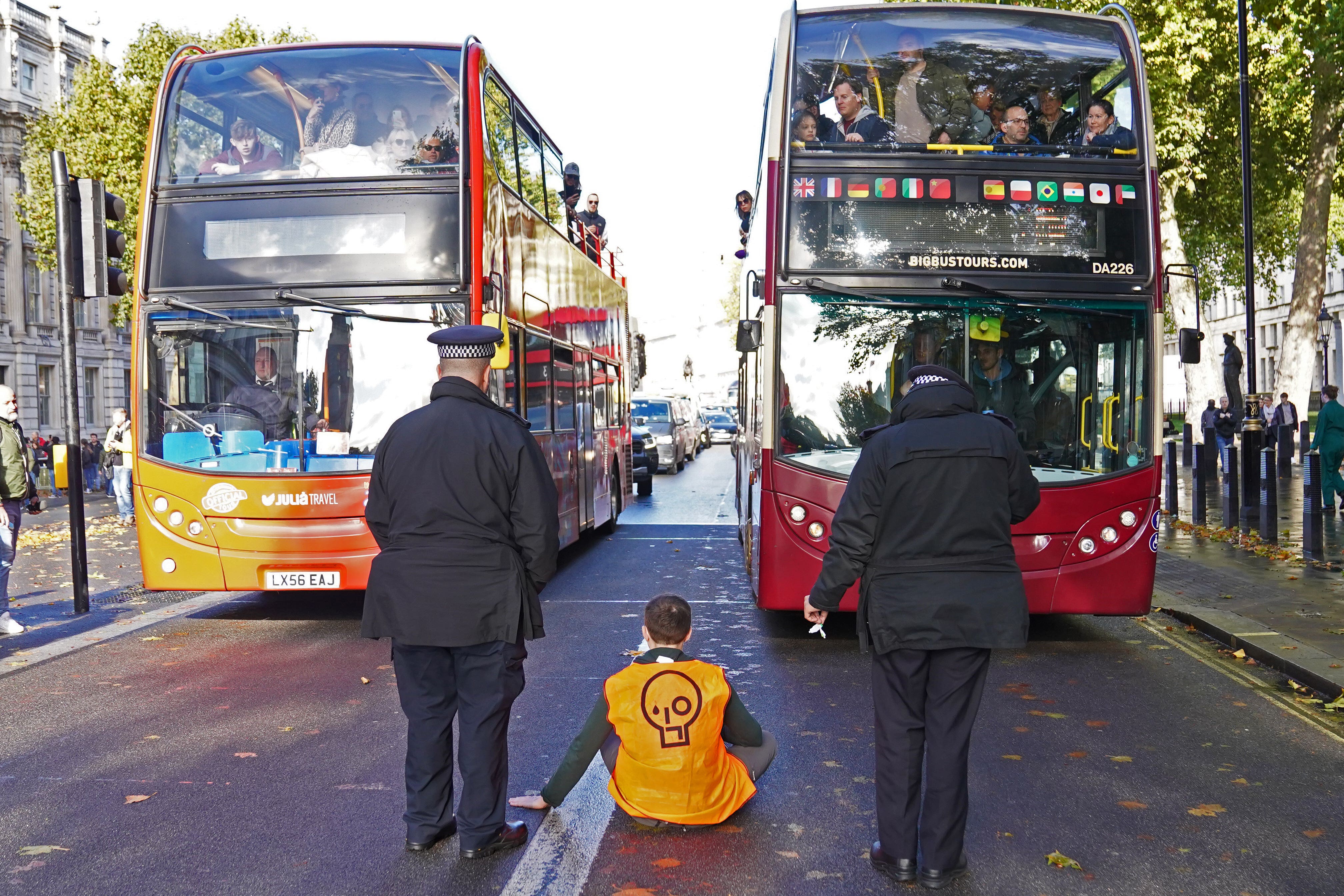Starmer criticises Sunak’s plans for extra police powers to tackle protesters
The Labour leader said existing measures could be used to tackle protests and accused Rishi Sunak of trying to legislate his way out of problems.

Your support helps us to tell the story
From reproductive rights to climate change to Big Tech, The Independent is on the ground when the story is developing. Whether it's investigating the financials of Elon Musk's pro-Trump PAC or producing our latest documentary, 'The A Word', which shines a light on the American women fighting for reproductive rights, we know how important it is to parse out the facts from the messaging.
At such a critical moment in US history, we need reporters on the ground. Your donation allows us to keep sending journalists to speak to both sides of the story.
The Independent is trusted by Americans across the entire political spectrum. And unlike many other quality news outlets, we choose not to lock Americans out of our reporting and analysis with paywalls. We believe quality journalism should be available to everyone, paid for by those who can afford it.
Your support makes all the difference.Police already have the powers they need to tackle Just Stop Oil protests, Sir Keir Starmer claimed as he accused Rishi Sunak of chasing headlines with new laws.
The Labour leader, a former Director of Public Prosecutions, suggested that existing laws could be used to tackle protest tactics such as slowly walking in roads to block traffic.
New powers proposed by ministers would allow police to intervene before protests become highly disruptive and give police greater clarity about dealing with demonstrators blocking roads or slow marching.
The amendments to the Public Order Bill are aimed at curbing the guerrilla tactics used by groups like Just Stop Oil, Insulate Britain and Extinction Rebellion.
But Sir Keir told LBC Radio: “I am as strong as anyone in the argument we need to take action against Just Stop Oil – gluing yourself to the road, taking those actions, stopping ambulances getting through – wrong, deeply arrogant and I want the police to act.”
He said the police wanted “clarity” on the law: “If I was prime minister… what I would do instead of more headline-grabbing legislation, I would get the chief constables into a room, sit them down with me and say ‘right, what’s the problem?’.
“Because I don’t accept that if you are walking at a funereal pace that that is not obstructing the highway and I think if police were told, in terms, ‘yes, that is an offence, get on and do something about it’ they could get on and do something about it tomorrow morning.”
He added “you can’t just legislate your way out of every problem” and he would get “the most senior lawyer we can, to give the strongest opinion and test it in court”.
“If we did that, we could actually take this action tomorrow instead of waiting for legislation to go through.” he said.
Under the proposed changes, police would not need to wait for disruption to take place and could shut demonstrations down before they escalate.
No 10 said police would not need to treat a series of protests by the same group as standalone incidents, but would be able to consider their total impact.
Mr Sunak said: “The right to protest is a fundamental principle of our democracy, but this is not absolute.
A balance must be struck between the rights of individuals and the rights of the hard-working majority to go about their day-to-day business
“A balance must be struck between the rights of individuals and the rights of the hard-working majority to go about their day-to-day business.”
The Prime Minister added: “We cannot have protests conducted by a small minority disrupting the lives of the ordinary public. It’s not acceptable and we’re going to bring it to an end.
“The police asked us for more clarity to crack down on these guerrilla tactics, and we have listened.”
Metropolitan Police Commissioner Sir Mark Rowley also gave his backing to the proposals, which would broaden the legal definition of serious disruption.
“It is clearly understood that everybody has the right to protest,” he said. “Increasingly, however, police are getting drawn into complex legal arguments about the balance between that right to protest and the rights of others to go about their daily lives free from serious disruption.
“The lack of clarity in the legislation and the increasing complexity of the case law is making this more difficult and more contested.”
I welcome the Government’s proposal to introduce a legal definition of 'serious disruption' and 'reasonable excuse'
Sir Mark added: “It is for Parliament to decide the law, and, along with other police chiefs, I made the case for a clearer legal framework in relation to protest, obstruction and public nuisance laws.
“We have not sought any new powers to curtail or constrain protest, but have asked for legal clarity about where the balance of rights should be struck.
“I welcome the Government’s proposal to introduce a legal definition of ‘serious disruption’ and ‘reasonable excuse’.
“In practical terms, Parliament providing such clarity will create a clearer line for the police to enforce when protests impact upon others who simply wish to go about their lawful business.”
The Public Order Bill is undergoing line-by-line scrutiny in the House of Lords, where the Government amendments will be introduced.
Human rights group Liberty said the plan amounted to an attack on the right to protest.
Director Martha Spurrier said: “These new proposals should be seen for what they are: a desperate attempt to shut down any route for ordinary people to make their voices heard.
“Allowing the police to shut down protests before any disruption has taken place simply on the off-chance that it might, sets a dangerous precedent, not to mention making the job of officers policing protests much more complex.”